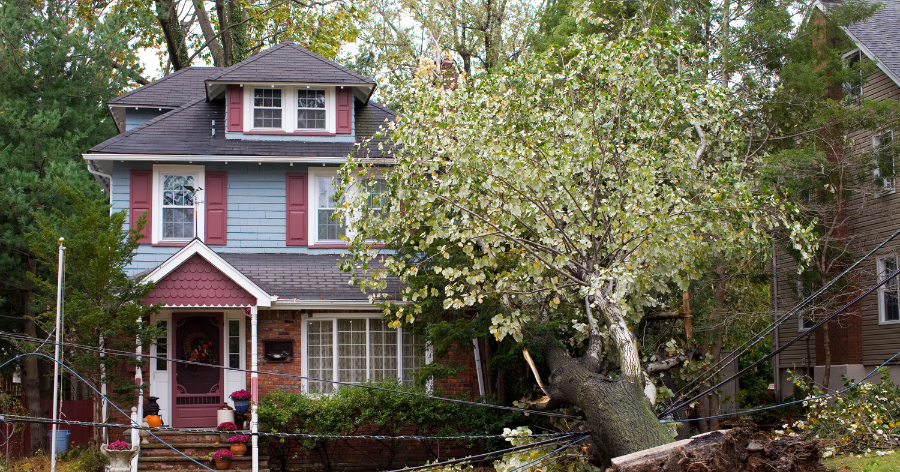When it comes to homeowners insurance, understanding the implications of tree damage is crucial. Trees, despite their beauty, can pose risks to property, and having the right insurance is the key to peace of mind.
The Basics of Coverage for Tree Damage
If a tree from your yard unexpectedly falls onto a neighbor's property, the first question that often arises is: who pays for the damage? The answer largely rests on liability. For instance, if a storm is the culprit behind the fallen tree, the neighbor's policy is typically the one that would cover the costs. However, if you've been neglecting a clearly dying tree and it ends up causing damage, then your insurance will most likely be the one paying.
Now, what if a tree falls and damages your own property? The good news is that your homeowners insurance generally has provisions for such scenarios. While the damage to your property would be covered, you should be ready to take care of the deductible.
Navigating Liability and Responsibility
Insurance can sometimes seem like a complex web of clauses and conditions. However, a few pointers can provide clarity. If, for example, your tree damages your neighbor's property but had shown no previous signs of danger or decay, then the neighbor's insurance is expected to manage the damages. Additionally, an incident like this doesn't necessarily mean you'll see a hike in your insurance premiums.
Trees and liabilities have nuances. For a healthy tree that unexpectedly falls due to natural causes, you typically can't be held responsible. But if you've been ignoring a sick or dying tree and it ends up causing damage, especially after your neighbor had raised concerns, then the situation changes. You could be held liable. The silver lining is that most insurance policies cover such liabilities, including potential legal defense costs.
But what about personal responsibility? Let's say a tree from your property does fall on your neighbor's lot. They might approach you to cover their deductible. While you might not be legally bound to, maintaining a healthy relationship with neighbors is always beneficial. Sometimes, small gestures can prevent bigger disputes down the line.
Diving Deeper into Insurance Coverage
Insurance policies often have clauses that aren't immediately apparent but can be beneficial. For example, the "Damage to Property of Others" clause in homeowners insurance. This provision can expedite payments, even without a clear-cut determination of legal liability. But be cautious: using this clause could potentially raise your insurance premiums. Additionally, remember that local regulations and specific policy exclusions can influence payment responsibilities.
Proactive Prevention Tips
The best way to handle potential tree damage is to prevent it. Regular tree inspections and trimming should be a part of your property maintenance. If you're worried about any tree, be it yours or your neighbor's, it's better to initiate a dialogue with the concerned party or even local authorities rather than take unilateral action.
In essence, homeowners insurance offers a safety net against unforeseen tree damage. Being informed and proactive is the best approach to harness its full benefits. Reach out to the MetzWood team to review or update your homeowners coverage today!
Share This Article!


